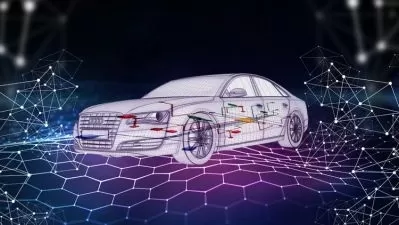Mastering OCPP 2.0.1: Beyond Basics
John Niemi
6:53:55
Description
New Techniques for EV Charging Management and Operations
What You'll Learn?
- Manage charging station security and connectivity
- Use different authorization cachel and authorization whitelists for stations
- Select best offline strategy for different use cases
- Use charging stations reservations
- Manage firmware updates of charging stations
- Fetch log files from stations
- Set up charging station monitoring and follow monitoring events
- Show transaction tariff and cost on a station
Who is this for?
What You Need to Know?
More details
DescriptionThe OCPP is a communication standard used by electric vehicle (EV) charging stations to facilitate the exchange of information between the charging station and a management system. It is an open protocol, meaning that it is freely available for anyone to use.
OCPPÂ version 2.0.1 is the latest version of the protocol with major updates and improvements compared to older versions. On many parts the 2.0.1 version is totally different from the older versions.
On this intermediate course we go beyond the basics of the protocol and explore different more advanced functionalities and use cases the protocol provides. The goal is to deepen the knowledge from our introductory course, and learn how to get full benefits from the protocol.
We cover topics such as:
Security settings for charging stations and the CSMSÂ system
Different offline functionalities of charging stations, such as authorization cache and authorization whitelists
Best strategies to use different offline features on various use cases
How to use reservations with charging stations
Firmware updates and tracking firmware update statuses
Fault diagnostics and log files
Monitoring different variables and events of stations
Working with tariffs and costs
Through our lessons and quizzes, participants will learn how to effectively use OCPP-based communications to manage and operate EV charging systems. We also provide practical examples to help participants understand how OCPP is used.
Upon completion of the course, participants will have several additional skills and knowledge on how to work with OCPP. Our course is suitable for charging station operators, fleet managers, and EV enthusiasts who want to learn more about the OCPP protocol and how it is used in the EV charging industry.
Who this course is for:
- Technical experts who already have basic knowledge of the OCPP 2.0.1 protocol and want to learn more advanced features it offers.
The OCPP is a communication standard used by electric vehicle (EV) charging stations to facilitate the exchange of information between the charging station and a management system. It is an open protocol, meaning that it is freely available for anyone to use.
OCPPÂ version 2.0.1 is the latest version of the protocol with major updates and improvements compared to older versions. On many parts the 2.0.1 version is totally different from the older versions.
On this intermediate course we go beyond the basics of the protocol and explore different more advanced functionalities and use cases the protocol provides. The goal is to deepen the knowledge from our introductory course, and learn how to get full benefits from the protocol.
We cover topics such as:
Security settings for charging stations and the CSMSÂ system
Different offline functionalities of charging stations, such as authorization cache and authorization whitelists
Best strategies to use different offline features on various use cases
How to use reservations with charging stations
Firmware updates and tracking firmware update statuses
Fault diagnostics and log files
Monitoring different variables and events of stations
Working with tariffs and costs
Through our lessons and quizzes, participants will learn how to effectively use OCPP-based communications to manage and operate EV charging systems. We also provide practical examples to help participants understand how OCPP is used.
Upon completion of the course, participants will have several additional skills and knowledge on how to work with OCPP. Our course is suitable for charging station operators, fleet managers, and EV enthusiasts who want to learn more about the OCPP protocol and how it is used in the EV charging industry.
Who this course is for:
- Technical experts who already have basic knowledge of the OCPP 2.0.1 protocol and want to learn more advanced features it offers.
User Reviews
Rating
John Niemi
Instructor's Courses
Udemy
View courses Udemy- language english
- Training sessions 14
- duration 6:53:55
- Release Date 2024/05/18










